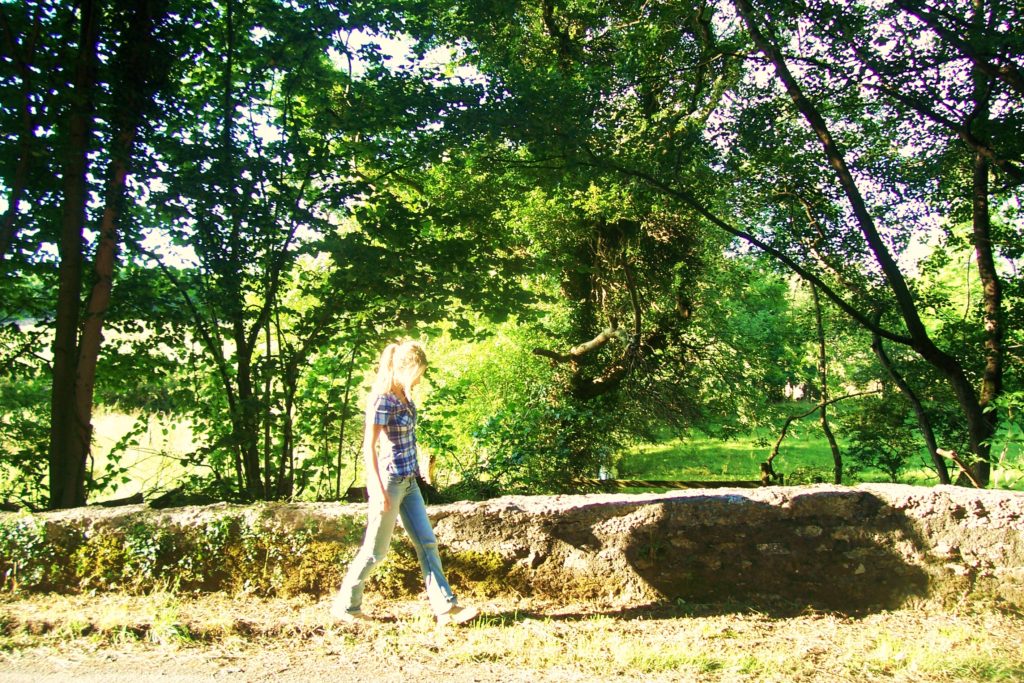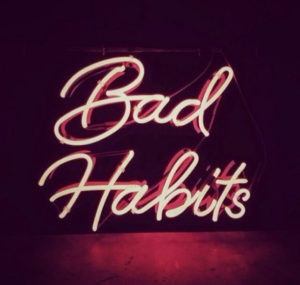This might be the hardest skill I’ve ever had to master and it’s also the thing that has saved my life in thousands of different ways, on thousands of different days.
I’m not encouraging laziness or promoting apathetic inaction here. What I’m talking about is the fundamental necessity of recognising when you really need to exercise damage control. This is about developing a positive passivity in your emotional life. The art of cultivating a deep, unshakeable sense of calm that you practice holding onto, regardless of whatever else is going on around you.
When I say ‘don’t do anything’, I don’t mean ‘don’t do anything at all, ever’. I’m not advocating that we lie in bed all day watching the dross that passes for daytime TV whilst stuffing our cakeholes with crisps. What I mean is, when you find yourself in heightened emotional states and your impulse is to act out, to speak your mind, to make threats, to possibly carry them out – when you find yourself in those sorts of situations – Don’t. Do. Anything.
Don’t do anything to further exacerbate the drama. Learn to sit on it. Learn to stay with the discomfort. Learn to just shut the fuck up, and learn to stay that way for a while before you do anything else with regard to the situation that’s causing you distress.

Not doing anything is the opposite of, for example, going out to drink even more the day after a huge ill-advised drinking session. Or sleeping with a random dude in order to stop obsessing over a significant dude. Or badmouthing a friend to another friend because you’re upset that your friend has betrayed you in some unfriendly way. Or chain smoking your way through 40 cigarettes in order to supress your appetite for colossal amounts of junk food. Or sending that fifth angry text (THAT WAS ALL IN CAPS) when you shouldn’t have even sent the first one.
Not doing anything is about making a mindful choice to get a grip of yourself. It is making the conscious decision to ground yourself rather than to give in to the appeal of distraction – and that’s all any of the above examples are; destructive distractions.
I know how powerful the pull of escapism can be. I’ve chain smoked my fair share of cigarettes. I’ve drunk far more than my fair share of booze in order to avoid painful realities. And I’ve wriggled my way under more than one person, who was in the right place at the wrong time, in a vain attempt to get over someone else. I’ve sent those ridiculous texts and I’ve made those empty threats, and you know what? I always felt a million times worse after doing all of the above, every single time.
I haven’t behaved like that for a long while, but like all change, it took time and effort, and addressing our destructive behaviours is something that we all have to do if we’re ever to have healthy interpersonal relationships and be truly happy.
We are all 100% responsible for our own happiness. We have to fundamentally accept this fact and behave accordingly at all times. Nobody else should be expected to make you feel better. You have to make yourself feel better and ideally you need to learn to do it in far more productive ways than I’ve outlined above.
You have to learn to repeatedly reject the idea of resorting to bad behaviour any time you feel dis-ease. Your version of bad behaviour might be different to mine and the things that push your buttons will also vary. It’s your job to identify your own bottom line bad behaviours and recognise what your personal triggers are.

You might not be in the habit of screaming and shouting but if you go into a sulk for three days instead, that’s just a different unhealthy extreme. You might assume that if you generally avoid blatantly hostile confrontations, then you can’t be doing much wrong, but some of the biggest buggers are the ones who calmly behave in passive aggressive ways.
The sort of behaviours you need to indulge in when things feel like they’re spiralling away from you are quiet, slow, calm, reflective, loving and forgiving things. You need bubble baths and cups of tea. You need comforting, predictable rom-coms or silly action adventure movies and big hearty wholesome bowls of soup.

You need huge glasses of cold water with ice cubes and thick wedges of lemon in them. You need snuggly blankets and good uplifting books and yoga and sleep. You need to leave your phone alone for a while. You need to go for a run or get to the gym. You need to go for a walk outside and breathe some fresh air into your lungs. You need to sit in a busy coffee shop and listen to the chatter of other lives going on all around you. You need to write a list of all the things you have to be grateful for. (As long as you draw breath, there is always something to be grateful for.) You need to take a break from the person or thing you’re upset with until you can work out why you’re really upset, what you did to contribute to the situation, and what you need to do differently next time.
Don’t waste your time trying to change anybody else. It’s hard enough just changing yourself and you don’t have the right to change anybody else anyway.
These examples are some of the simplest safest options available to you the next time you find yourself losing your sense of self. You’ll be able to add to these suggestions over time with more specific stuff that you personally find particular sanctuary in.
I promise you, when you learn how to properly mitigate and manage your own distress without relying on anybody else to do it for you, you will be amazed at why you ever did anything else. None of us are Jesus. We only get one shot at this life. Don’t waste your time being a silly billy.
